【经典实用】2011年高考英语(人教版)要点梳理+重点突破:必修2 Unit 4 Wildlife protection
- 格式:doc
- 大小:174.50 KB
- 文档页数:54
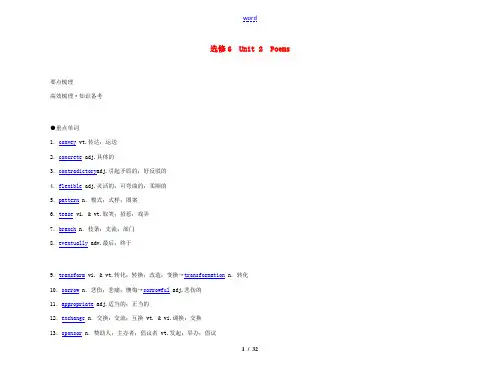
选修6 Unit 2 Poems要点梳理高效梳理·知识备考●重点单词1.convey vt.传达;运送2.concrete adj.具体的3.contradictory adj.引起矛盾的;好反驳的4.flexible adj.灵活的;可弯曲的;柔顺的5.pattern n.模式;式样;图案6.tease vi. & vt.取笑;招惹;戏弄7.branch n.枝条;支流;部门8.eventually adv.最后;终于9.transform vi. & vt.转化;转换;改造;变换→transformation n.转化10.sorrow n.悲伤;悲痛;懊悔→sorrowful adj.悲伤的11.appropriate adj.适当的;正当的12.exchange n.交换;交流;互换 vt. & vi.调换;交换13.sponsor n.赞助人;主办者;倡议者 vt.发起;举办;倡议14.load n.负担;负荷物(尤指沉重的)●重点短语1.make sense有意义2.can’t take one’s eyes off sb./sth. 无法将目光从某人身上/某物上挪开3.stay up熬夜,不睡觉;挺立4.take it easy轻松;不紧X;从容5.run out of 用完6.make up of (多用于被动结构)构成7.transform into... 变成……8.in particular尤其;特别9.try out测试;试验10.let out发出;放走●重点句型1.There are various reasons why people write poetry.人们会写诗有种种原因。
2.Some rhyme(like B) while others do not(like C).有些诗押韵(像B),但也有些不是这样(像C)。
3.And said thoughstrange they all were true. 而且他说虽然这有些离奇,但却真实。
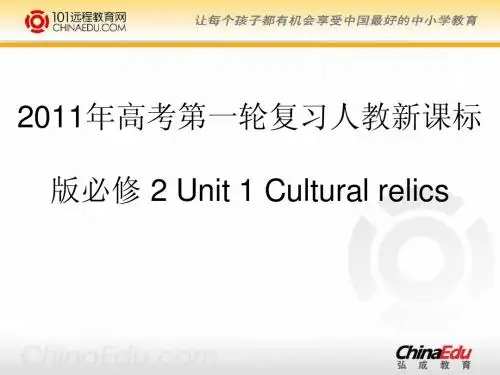
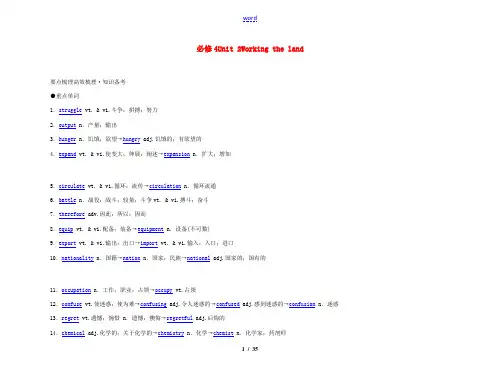
必修4Unit 2Working the land要点梳理高效梳理·知识备考●重点单词1.struggle vt. & vi.斗争;拼搏;努力2.output n.产量;输出3.hunger n.饥饿;欲望→hungry adj.饥饿的;有欲望的4.expand vt. & vi.使变大;伸展;阐述→expansion n.扩大;增加5.circulate vt. & vi.循环;流传→circulation n.循环流通6.battle n.战役;战斗;较量;斗争vt. & vi.搏斗;奋斗7.therefore adv.因此;所以;因而8.equip vt. & vi.配备;装备→equipment n.设备(不可数)9.export vt. & vi.输出;出口→import vt. & vi.输入;入口;进口10.nationality n.国籍→nation n.国家;民族→national adj.国家的;国有的11.occupation n.工作;职业;占领→occupy vt.占领12.confuse vt.使迷惑;使为难→confusing adj.令人迷惑的→confused adj.感到迷惑的→confusion n.迷惑13.regret vt.遗憾;惋惜 n.遗憾;懊悔→regretful adj.后悔的14.chemical adj.化学的;关于化学的→chemistry n.化学→chemist n.化学家;药剂师15.bacteria n.(bacterium的复数形式)细菌16.reduce vt.减少;缩减;简化→reduction n.缩小;减少17.summary n.总结;摘要;概要→summarize vt.总结18.ment n.评论;议论 vi. & vt.表达意见;作出评论●重点短语1.thanks to幸亏;由于2.rid...of摆脱;除去3.be satisfied with对……感到满意4.would rather宁愿;宁可5.build up逐渐增强;建立;开发6.lead to导致;造成7.focus on集中(注意力、精力等)于8.keep...free from/of使……免受(影响、伤害等);使……不含(有害物)9.make a difference 造成差异,很重要10.keep in mind 牢记在心11.cause damage to对……造成危害12.in addition 再者,还有13.turn to转向●重点句型1.Dr. Yuan Longping grows whatiscalled super hybrid rice.袁隆平博士种植的是被称为“超级杂交水稻〞的稻种。
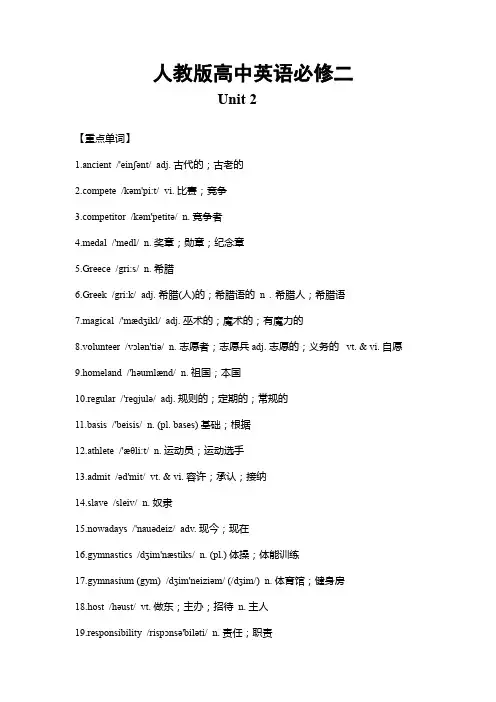
人教版高中英语必修二Unit2【重点单词】1.ancient/'einʃənt/adj.古代的;古老的pete/kəm'pi:t/vi.比赛;竞争petitor/kəm'petitə/n.竞争者4.medal/'medl/n.奖章;勋章;纪念章5.Greece/gri:s/n.希腊6.Greek/gri:k/adj.希腊(人)的;希腊语的n.希腊人;希腊语7.magical/'mædʒikl/adj.巫术的;魔术的;有魔力的8.volunteer/vɔlən'tiə/n.志愿者;志愿兵adj.志愿的;义务的vt.&vi.自愿9.homeland/'həumlænd/n.祖国;本国10.regular/'reɡjulə/adj.规则的;定期的;常规的11.basis/'beisis/n.(pl.bases)基础;根据12.athlete/'æθli:t/n.运动员;运动选手13.admit/əd'mit/vt.&vi.容许;承认;接纳14.slave/sleiv/n.奴隶15.nowadays/'nauədeiz/adv.现今;现在16.gymnastics/dʒim'næstiks/n.(pl.)体操;体能训练17.gymnasium(gym)/dʒim'neiziəm/(/dʒim/)n.体育馆;健身房18.host/həust/vt.做东;主办;招待n.主人19.responsibility/rispɔnsə'biləti/n.责任;职责20.replace/ri'pleis/vt.取代;替换;代替21.motto/'mɔtəu/n.座右铭;格言;警句22.swift/swift/adj.快的;迅速的23.charge/tʃɑ:dʒ/vt.&vi.收费;控诉n.费用;主管24.physical/'fizikl/adj.物理的;身体的25.fine/fain/vt.罚款26.poster/'pəustə/n.海报;招贴27.advertise/'ædvətaiz/vt.&vi.做广告;登广告28.glory/'ɡlɔ:ri/n.光荣;荣誉29.bargain/'bɑ:ɡin/vi.讨价还价;讲条件n.便宜货30.hopeless/'həuplis/adj.没有希望的;绝望的31.foolish/'fu:liʃ/adj.愚蠢的;傻的32.pain/pein/n.疼痛;痛苦33. deserve/di'zə:v/vi.&vt.应受(报答或惩罚);值得【重点短语】pete with/ against 与……进行竞争pete for 为……而竞争3.take part in 参加,参与(活动)4.stand for 代表,象征,表示5.stand out 突出,显眼6.on a regular basis 有规律地7.admit (to) doing sth 承认做某事8.admit sb/sth to be 承认某人/某事是……9.be admitted as 作为……被接受10.be admitted to/into 获准进入11.replace B with/by A 用A代替B12.charge (sb) some money for sth为某物(向某人)要价13.take charge of 负责14.free of charge 免费15.in charge of 主管16.in the charge of sb 在某人的主管之下17.bargain with sb about/over sth 和某人讨价还价18.make/reach a bargain with sb 与某人达成协定19.one after another 陆续地,一个接一个地20.difference between…and… ……和……之间的区别21.find out 发现,查明,弄清ed to do sth 过去常常做某事23.be/get used to doing sth 习惯于做某事24.reach the standard 达到标准25.change one’s mind 改变主意26.ask sb for help 向某人求助27.promise (sb) to do sth 答应(某人)做某事28.pick up 拾起,捡起29.be allowed to do sth 被允许做某事30.be built for 为……建造31.take responsibility for 为……负责32.on purpose故意【重点句型】1.I lived in what you call“Ancient Greece” and I used to write about the Olympic Games a long time ago.我生活在你们所说的“古希腊”,我过去常常写有关很久以前的奥林匹克运动会的文章。
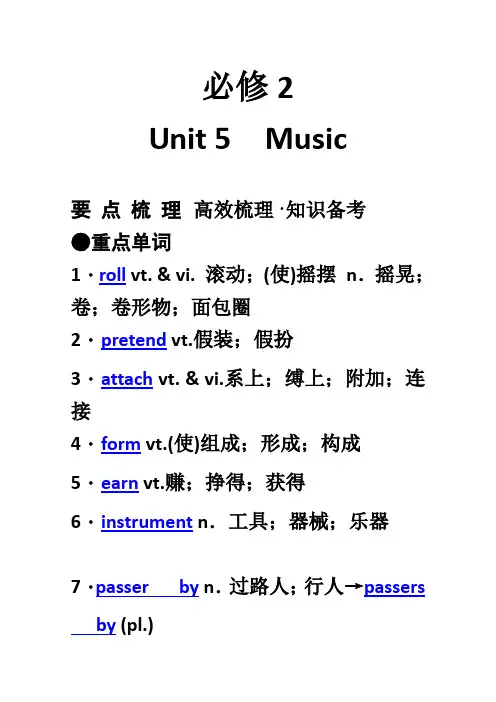
必修2Unit 5Music要点梳理高效梳理·知识备考●重点单词1.roll vt. & vi. 滚动;(使)摇摆n.摇晃;卷;卷形物;面包圈2.pretend vt.假装;假扮3.attach vt. & vi.系上;缚上;附加;连接4.form vt.(使)组成;形成;构成5.earn vt.赚;挣得;获得6.instrument n.工具;器械;乐器7.passer by n.过路人;行人→passers by (pl.)8.perform vt. & vi.表演;履行;执行→performance n.表演;演奏9.broadcast n.广播;播放vi. & vt.广播;播放10.humorous_ adj.幽默的→humor n.幽默11.familiar adj.熟悉的;常见的;亲近的12.attractive adj.吸引人的;有吸引力的→attract vt.吸引→attraction n.吸引,吸引力13.afterwards adv.然后;后来14.sensitive adj.敏感的;易受伤害的;灵敏的15.confident adj.自信的;确信的→confidence n.自信●重点短语1.dream of梦见;梦想2.to be honest 说实在的3.attach...to附上;认为有(意义) 4.in cash 用现金5.play jokes on戏弄6.rely on依靠;依赖7.be/get familiar with熟悉8.or so大约9.break up打碎;分裂10.in addition 另外,也11.sort out分类12.above all 最重要;首先13.be based on以……为基础14.be serious about对……认真15.by cheque 用支票16.stick to坚持●重点句型1.Freddy and his band could not go out anywhere without being followed弗雷迪和他的乐队走到哪里都会有人跟随。
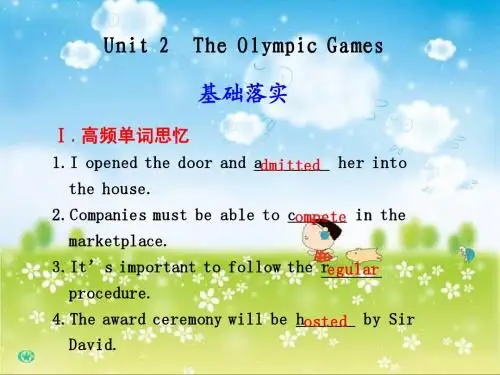
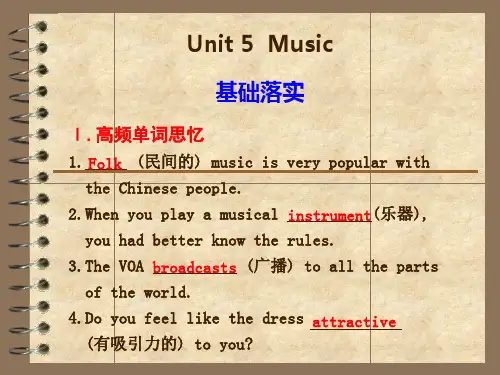

Book 2 Unit 2 知识点一、重点词汇pete vi. 比赛;竞争(1)compete in 参加……比赛compete for 为……而竞争compete with/against sb. for sth. 为争取……而与某人竞争(2)competition n. 比赛;竞争competitive adj. 竞争的;有竞争力的competitor n. 竞争者;对手Like many young athletes, she had Olympic dreams, but a serious illness kept her from competing in the Games.2.admit vt.&vi. 容许;承认;接纳be admitted to 被接纳进入;被录取到……admission n. 准许进入;入场费;承认She was admitted to Peking University in 2017, which made her parents very happy.2017年她被北大录取了,这使得她的父母非常高兴。
3.replace vt. 取代;代替;把……放回原处(1)replace sth. with/by sth. 用……替换……代替in place of 代替(2)take the place of=take one’s placeYou have to replace the books on the shelves before you leave. 你离开之前必须把书放回书架上。
4.charge vt.&vi. 收费;控诉;充电;负责n. 费用;主管(1)charge sb. for sth. 为某物向某人收取费用(2)charge sb with (doing) sth. 控告某人(做)某事(3)take charge of 掌管/负责……free of charge 免费in charge of 管理……in the charge of 受……的管理There is a heated discussion on whether museums should charge for admission or not.人们就博物馆是否应该收入场费有激烈的争论。
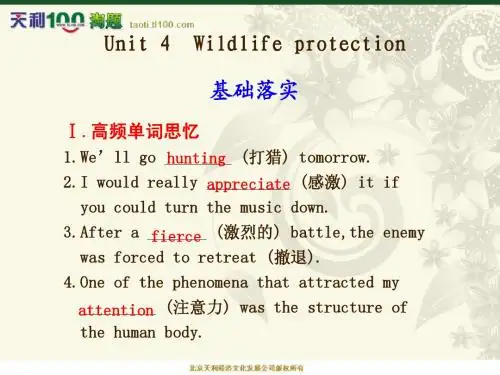
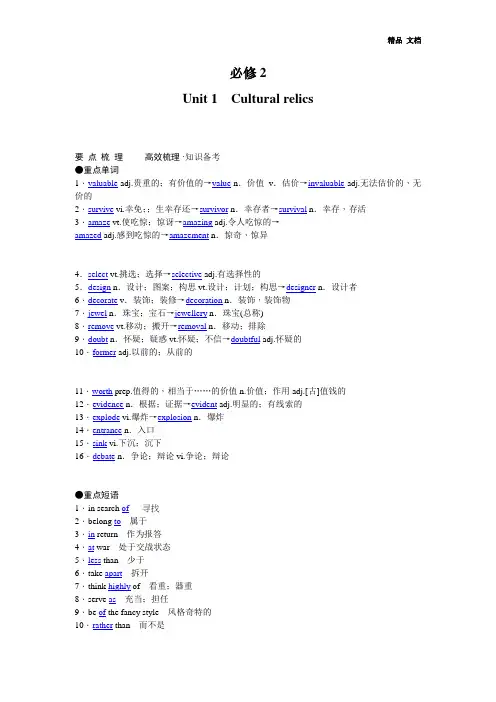
必修2Unit 1Cultural relics要点梳理高效梳理·知识备考●重点单词1.valuable adj.贵重的;有价值的→value n.价值v.估价→invaluable adj.无法估价的,无价的2.survive vi.幸免;;生幸存还→survivor n.幸存者→survival n.幸存,存活3.amaze vt.使吃惊;惊讶→amazing adj.令人吃惊的→amazed adj.感到吃惊的→amazement n.惊奇,惊异4.select vt.挑选;选择→selective adj.有选择性的5.design n.设计;图案;构思vt.设计;计划;构思→designer n.设计者6.decorate v.装饰;装修→decoration n.装饰,装饰物7.jewel n.珠宝;宝石→jewellery n.珠宝(总称)8.remove vt.移动;搬开→removal n.移动;排除9.doubt n.怀疑;疑惑vt.怀疑;不信→doubtful adj.怀疑的10.former adj.以前的;从前的11.worth prep.值得的,相当于……的价值n.价值;作用adj.[古]值钱的12.evidence n.根据;证据→evident adj.明显的;有线索的13.explode vi.爆炸→explosion n.爆炸14.entrance n.入口15.sink vi.下沉;沉下16.debate n.争论;辩论vi.争论;辩论●重点短语1.in search of寻找2.belong to属于3.in return 作为报答4.at war 处于交战状态5.less than 少于6.take apart拆开7.think highly of 看重;器重8.serve as充当;担任9.be of the fancy style 风格奇特的10.rather than 而不是●重点句型1.Frederick William I, the King of Prussia, could never have imagined that his greatest gift to the Russian people would have such an amazing history.普鲁士国王腓特烈·威廉一世永远想象不到,他赠给俄罗斯人民的最厚重的礼物会有这样一段令人惊讶的历史。
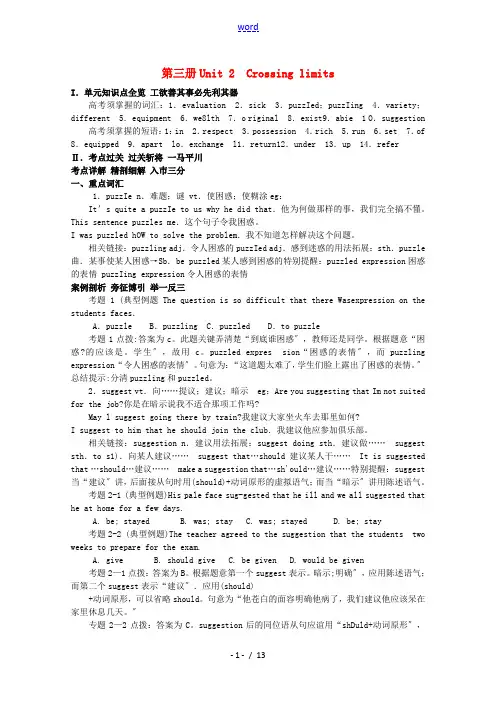
第三册Unit 2 Crossing limitsI.单元知识点全览工欲善其事必先利其器高考须掌握的词汇:1.evaluation 2.sick 3.puzzIed;puzzIing 4.variety;different 5.equipment 6.we8lth 7.o riginal 8.exist9.abie 1 O.suggestion 高考须掌握的短语:1:in 2.respect 3.possession 4.rich 5.run 6.set 7.of 8.equipped 9.apart lo.exchange l1.return12.under 13.up 14.referⅡ.考点过关过关斩将一马平川考点详解精剖细解入巿三分一、重点词汇1.puzzIe n.难题;谜 vt.使困惑;使糊涂eg:It’s quite a puzzIe to us why he did that.他为何做那样的事,我们完全搞不懂。
This sentence puzzles me.这个句子令我困惑。
I was puzzled hOW to solve the problem.我不知道怎样解决这个问题。
相关链接:puzzling adj.令人困惑的puzzIed adj.感到迷惑的用法拓展:sth.puzzle 曲.某事使某人困惑→Sb.be puzzled某人感到困惑的特别提醒:puzzled expression困惑的表情 puzzIing expression令人困惑的表情案例剖析旁征博引举一反三考题1 (典型例题The question is so difficult that there Wasexpression on the students faces.A.puzzle B.puzzling C.puzzled D.to puzzle考题1点拨:答案为c。
此题关键弄清楚“到底谁困惑〞,教师还是同学。
必修2Unit 2The Olympic Games要点梳理高效梳理·知识备考●重点单词1.ancient adj.古代的;古老的2.pete vi.比赛;竞争→petition n.比赛;竞争→petitive adj.有竞争性的→petitor n.竞争者3.magical adj.巫术的;魔术的;有魔力的→magic adj.魔术的;不可思议的;n.魔法,魔术→magician n.魔术师4.volunteer n.志愿者;志愿兵adj.志愿的;义务的(vt. & vi.)自愿→voluntary adj.自愿的,自发的5.regular adj.规那么的;定期的;常规的→regulation n.规那么,制度→regulate v.规定,管制,整顿6.basis n. (pl. bases)基础;根据7.athlete n.运动员;运动选手8.stadium n. (pl. stadiums or stadia)(露天大型)体育场9.host vt.做东;主办;招待→hoster n.男主持人,男主人→hostess n.女主人,女主持人10.responsibility n.责任;职责→responsible adj.有责任的,对……负责的11.replace vt.取代;替换;代替12.charge vt. & vi.收费;控诉n.费用;主管13.physical adj.物理的;身体的→physics n.物理→physicist n.物理学家→physician n.内科医生14.advertise vt. & vi.作广告;登广告→advertisement n.广告→advertiser n.广告客户15.hopeless adj.没有希望的;绝望的→hope v. & n.希望→hopeful adj.充满希望的16.bargain vi.讨价还价;讲条件 n.便宜货17.deserve vi. & vt.应受(报答或惩罚);值得●重点短语1.take part in参加2.stand for代表3.every_ four years 每四年4.a set of 一组;一套5.be admitted to被准许进入6.play an important role in 在……中起重要作用7.as well 也,又,还8.in charge 主管;看管9.one after another 陆续地;一个接一个地10.pick up拾起●重点句型1.I lived in what you call“Ancient Greece〞 and I usedto write about the Olympic Games a long time ago. 我生活在你们所说的“古希腊〞,我曾经写过很久以前奥林匹克运动会的情况。
必修2Unit 3Computers要点梳理高效梳理·知识备考●重点单词1.calculate vt.计算→calculator n.计算器2.universal adj.普遍的;通用的;宇宙的→universe n.宇宙→universally adv.普遍地3.simplify vt.简化→simple adj.简单的4.technology n.工艺;科技;技术→technological adj.科技的5.revolution n.革命→revolutionary adj.革命的6.intelligence n.智力;聪明;智能→intelligent adj.有才智的;聪明的7.solve vt.解决;解答→solution n.解答8.reality n.真实;事实;现实→real adj.真实的,真正的9.personal adj.私人的;个人的;亲自的→personally adv.亲自地10.finance n.金融;财经→financial adj.金融的,财政的11.explore vt. & vi.探索;探测;探究12.anyhow adv.无论如何;即使如此13.goal n.目标;目的;球门;(进球)得分14.signal vi. & vt.发信号n.信号15.type n.类型vt. & vi.打字16.arise vi.出现;发生17.electronic adj.电子的●重点短语1.have...in common共有;共用2.from...on从……时起3.come into reality成为现实4.as a result 结果5.in a way 在某种程度上6.with the help of 在……的帮助下7.deal with处理8.watch over看守;监视9.give away赠送10.be crazy about对……着迷11.make up弥补;整理12.after all 毕竟●重点句型1.And my memory became so large that even I couldn't believe it!我的存储量变得如此巨大,甚至连我自己都不能相信!2.Anyhow, my goal is to provide humans with a life of high quality.无论如何,我的目标是为人类提供高质量的生活。
必修2Unit 4Wildlife protection要点梳理高效梳理·知识备考●重点单词1〃protection n.保护→protect v.保护→protective adj.保护的,防护的2〃decrease vi. & vt.减少;(使)变小或变少3〃loss n.损失;遗失;丧失→lose v.遗失,丢失→loser n.输家;失败者→lost adj.遗失的,失去的4〃hunt vt. & vi.打猎;猎取;搜寻5〃respond vi.回答;响应;作出反应6〃certain adj.确定的;无疑的;某种7〃contain vt.包含;容纳;容忍→container n.容器8〃powerful adj.强大的;有力的→powerfully adv.有力地→power v.给……提供动力9〃affect vt.影响;感动;侵袭10〃appreciate vt.鉴赏;感激;意识到11〃succeed vi.成功vt.接替;继任12〃employ vt.雇用;利用(时间、精力等)13〃harm n. & vt.损害;危害→harmful adj.有害的14〃bite vt. & vi.咬;叮;刺痛→bit(过去式)→bitten(过去分词)15〃inspect vt.检查;视察16〃fierce adj.凶猛的;猛烈的→fiercely adv.猛烈地→fierceness n.猛烈●重点短语1〃die out灭亡;逐渐消失2〃in peace 和平地;安详地;和睦地3〃in danger(of) 在危险中,垂危4〃in relief 如释重负5〃burst into laughter 突然笑起来6〃protect...from保护……不受……(危害)7〃pay attention to注意8〃come into being形成;产生9〃according to按照;根据……所说10〃do harm to危害11〃without mercy 毫不留情地12〃respond to对……作出回答●重点句型They lived on the earth tens of millions of years ago, long before humans came into being...千百万年前它们(恐龙)就在地球上生活,比人类的出现要早得多……●高考范文(2009·福建卷)某英语报社拟成立“微笑俱乐部”,现向全球征募会员。
Part 1. Warming up1. How many countries competed in the ancient Olympic Games?compete vi.比赛;竞争常用搭配:compete in...在某一方面竞争compete for...为...而竞争compete with/against... 与...竞争How many runners will be competing in the marathon?有多少运动员参加马拉松赛跑?The two teams compete for the championship. 那两队要争当冠军。
He believed that nobody could compete with him. 他相信没有人能与他抗衡。
词汇扩展:competition n.比赛competitive adj.有竞争力的competitor n.比赛者;对手The students competed ____ the honor of winning ____ each other _____ the school sports meeting.A. for, against, inB. in, with, againstC. against, for, atD. about, in, with2.Who couldn’t take part in the ancient Olympic Games?take part in意为:参加复习join,join in,join sb.in (doing) sth.,take part in,attend区别,详见必修1Unit13.What do the five rings on the Olympic flag stand for?stand for (指缩写或符号)代表;象征;倡导,支持,主张,写出下列stand for的意思。
必修1Unit 2English around the world要点梳理高效梳理·知识备考●重点单词1.official adj.官方的;正式的;公务的→office n.办公室→officer n.官员2.voyage n.航行;航海3.native adj.本国的;本地的n.本地人;本国人4.actually adv.实际上;事实上5.base vt.以……为根据n.基部;基地;基础→basic adj.基本的;基础的6.gradual adj.逐渐的,逐步的→gradually adv.逐渐地,逐步地7.identity n.本身;本体;身份→identical adj.相同的,一样的→identify v.确定;认出;鉴定8.fluent adj.流利的;流畅的→fluently adv.流利地,流畅地→fluency n.流利,流畅9.frequent adj.频繁的;常见的→frequently adv.常常;频繁地→frequency n.频率;频度10.usage n.使用;用法;词语惯用法→useful adj.有用的→use n. & v.使用,利用11.command n. & vt.命令;指令;掌握→commander n.指挥员,司令员12.request n.& vt.请求;要求13.expression n.词语;表示;表达→express v.表达→expressive adj.富于表情的;有表现力的14.recognize vt.辨认出;承认;公认→recognizable adj.容易认出的;易于识别的→recognition n.认出;认识;识别15.accent n.口音;腔调;重音16.lightning n.闪电17.straight adv.直接地;挺直地adj.直的;笔直的;正直的●重点短语1.because of由于;因为2.come up走近;上来3.at present 现在;目前4.make use of 利用5.such as例如……;像这种的6.play a part in 扮演一个角色;参与7.ever before 从前8.even if/though即使9.be based on以……为基础10.over time 长期以来11.in the early days 在早期12.the same as相同于●重点句型1.Today, more people speak English as their first, second or a foreign language than ever before.如今说英语的人比以往任何时候都多,他们有的把英语作为第一语言来说,有的把它作为第二语言或外语。
必修2Unit 4Wildlife protection要点梳理高效梳理·知识备考●重点单词1.protection n.保护→protect v.保护→protective adj.保护的,防护的2.decrease vi. & vt.减少;(使)变小或变少3.loss n.损失;遗失;丧失→lose v.遗失,丢失→loser n.输家;失败者→lost adj.遗失的,失去的4.hunt vt. & vi.打猎;猎取;搜寻5.respond vi.回答;响应;作出反应6.certain adj.确定的;无疑的;某种7.contain vt.包含;容纳;容忍→container n.容器8.powerful adj.强大的;有力的→powerfully adv.有力地→power v.给……提供动力9.affect vt.影响;感动;侵袭10.appreciate vt.鉴赏;感激;意识到11.succeed vi.成功vt.接替;继任12.employ vt.雇用;利用(时间、精力等)13.harm n. & vt.损害;危害→harmful adj.有害的14.bite vt. & vi.咬;叮;刺痛→bit(过去式)→bitten(过去分词) 15.inspect vt.检查;视察16.fierce adj.凶猛的;猛烈的→fiercely adv.猛烈地→fierceness n.猛烈●重点短语1.die out灭亡;逐渐消失2.in peace 和平地;安详地;和睦地3.in danger(of) 在危险中,垂危4.in relief 如释重负5.burst into laughter 突然笑起来6.protect...from保护……不受……(危害)7.pay attention to注意8.come into being形成;产生9.according to按照;根据……所说10.do harm to危害11.without mercy 毫不留情地12.respond to对……作出回答●重点句型They lived on the earth tens of millions of years ago, long before humans came into being...千百万年前它们(恐龙)就在地球上生活,比人类的出现要早得多……●高考范文(2009·福建卷)某英语报社拟成立“微笑俱乐部”,现向全球征募会员。
要求申请者提交一篇题为I Want to Smile的英语短文。
请你以申请者的身份,根据以下思路图的提示用英语写一篇短文。
注意:1.根据思路图适当展开,以使行文连贯;2.词数:120左右。
I Want to Smile____________________________________________________________________________________________[范文]I Want to SmileThere are many advantages of smiling. It can not only make us happy, but also please others. If we smile at life, life will smile on us in return. So I want to smile at all whenever and wherever possible,First, I would like to smile at my parents because they have given me my life and take all the troubles to bring me up. They arrange almost everything for me. With their help, I have made great progress. I would like to say “Thank you”to them with a smile. Then my smile should goto myself, for only in this way can I gain more confidence in smiling my troubles away and live a better life.In a word, let's greet every day with a smile. Tomorrow is another day.考点探究互动探究·能力备考Ⅰ.词汇短语过关1.respond vi.回答,答复;响应,作出反应response n. 回答,回复;反应respond to sb./sth.回答(比answer, reply to正式)respond to sb./sth. (with/ by sth.) 用……回应某人(事)respond to (疾病、身体的受伤部分)对医药有良好反应response to sb./sth. (对人/物)的回答/回复/反应in response to 作为对……的反应[即学即练1](1)They still haven't ____________ my letter.他们至今仍没有回我的信。
(2)He ____________ my suggestion ________ a laugh/______ laughing. 他对我的建议报以一笑。
(3)His illness didn't ____________ treatment by drugs.他的疾病对药物治疗没有反应。
(4)My mother opened the door ____________________ the knock, but there was no one outside.听到敲门声后,我妈妈打开了门,但外面一个人都没有。
responded toresponded towithbyrespond toin response to2.certain adj. 确定的;无疑的;某(种)(1)作“某(种)”讲时,同义于some。
但some 前不加冠词。
for a certain reason=for some reason 由于某种原因certain professors=some professors 某些教授a certain amount of time 相当一段时间(2)作“确信的,有把握的”讲时,同义于sure。
但是certain 的主语既可以是人,也可用于It is certain that...句型,而sure 主语只能是人。
“be certain/sure+从句”(人)有把握/确信……(表示主语的信念)be certain/sure of/about sth. (人)确信(表示主语的信念)be certain/sure to do sth. 必定/肯定会做某事(主语常为二、三人称,表示说话人的信念)“make certain/sure+从句”弄清楚/确保……make certain/sure of/about sth. 把某件事情弄清楚for certain/sure 确定地,确切地(做状语)It is certain that... 一定会……(不能用sure)[即学即练2](1)There was _________________ in his manner.他的态度有点冷淡。
(2)Are you ____________________ it?你对此有把握吗?(3)He is __________________ his duty.他肯定会尽职。
(4)_________________ he has wronged me.我确信他冤枉了我。
(5)_________________ their team will win the match.他们队肯定会赢得比赛。
a certain coldnesscertain about/ofcertain to doI’m certain thatIt’s certain that3.contain vt. 包含;容纳(=hold);抑制(=control) [即学即练3](1)His paper ___________ no mistakes at all.他的试卷没有一点错误。
(2)Orange juice ____________ things which help keep you healthy. 橘汁里含有有益于健康的东西。
(3)This bottle ___________ two glasses of beer.这个瓶子可容纳两杯啤酒。
(4)He couldn't ____________ for joy.他不胜欢喜。
containedcontainscontainscontain himself4.affect vt.影响;感动;(疾病)侵袭be greatly/deeply affected很/深受感动be affected by heat/cold中暑/着凉be affected with high fever发高烧[即学即练4](1)The amount of rain ______ the growth of crops.降雨量直接影响庄稼生长。
(2)One of her lungs ____________ a little so that she has to rest.她的一叶肺有些感染,所以她不得不休息。
(3)The audience ____________________ by his speech.听众被他的演讲深深打动了。
affectsis affectedwere deeply affected5.appreciate vt. 欣赏;感激;喜欢appreciation n. 欣赏;感激appreciate sth. (thank sb.) 感激某事或某人appreciatedoing sth.感激做某事one/one's doing sth.感激某人做某事I would appreciate it if... 如果……,我将不胜感激。
[即学即练5](1)He highly __________________________.他非常感谢他的帮助。
(2)We shall ___________________________ you again. 我们将很高兴再次收到您的来信。